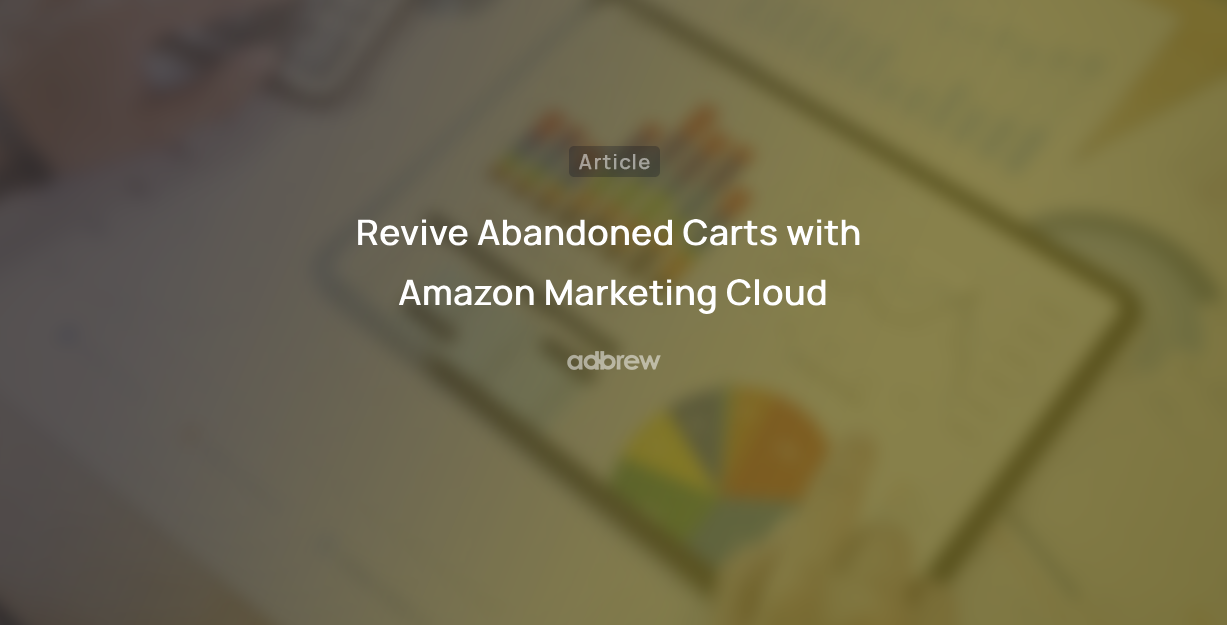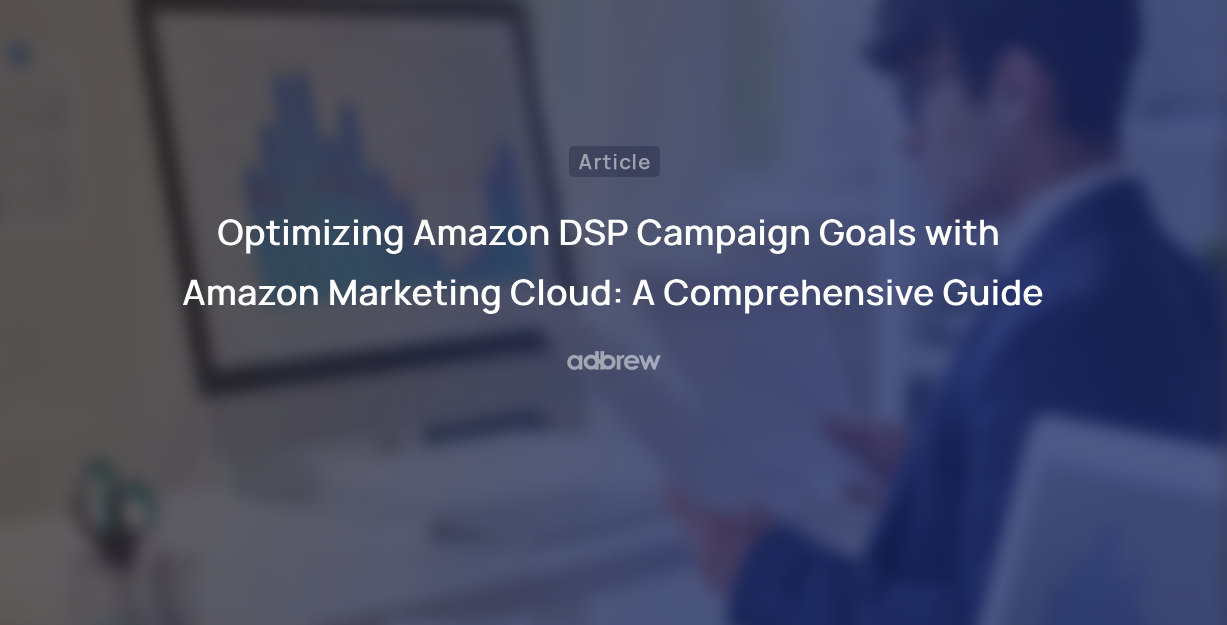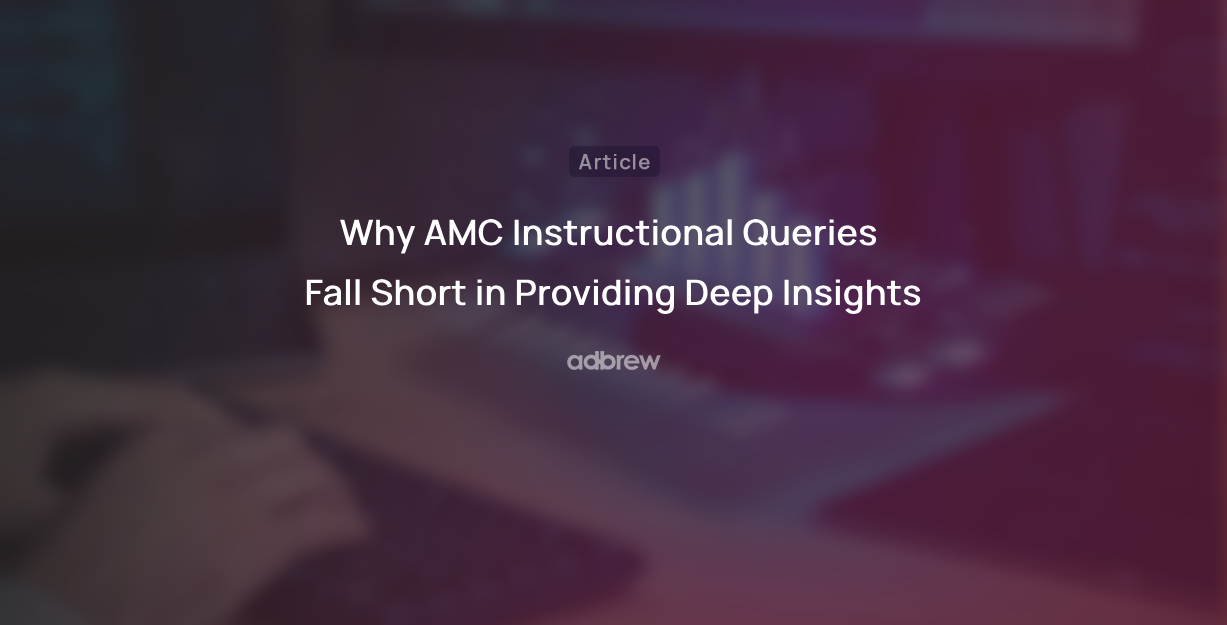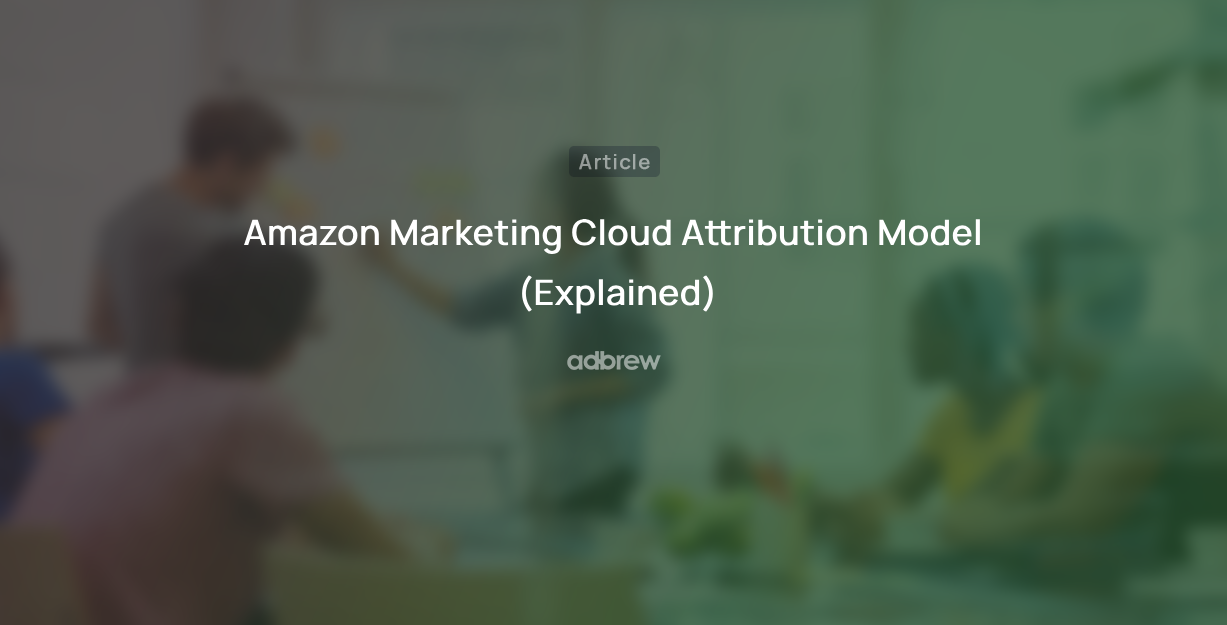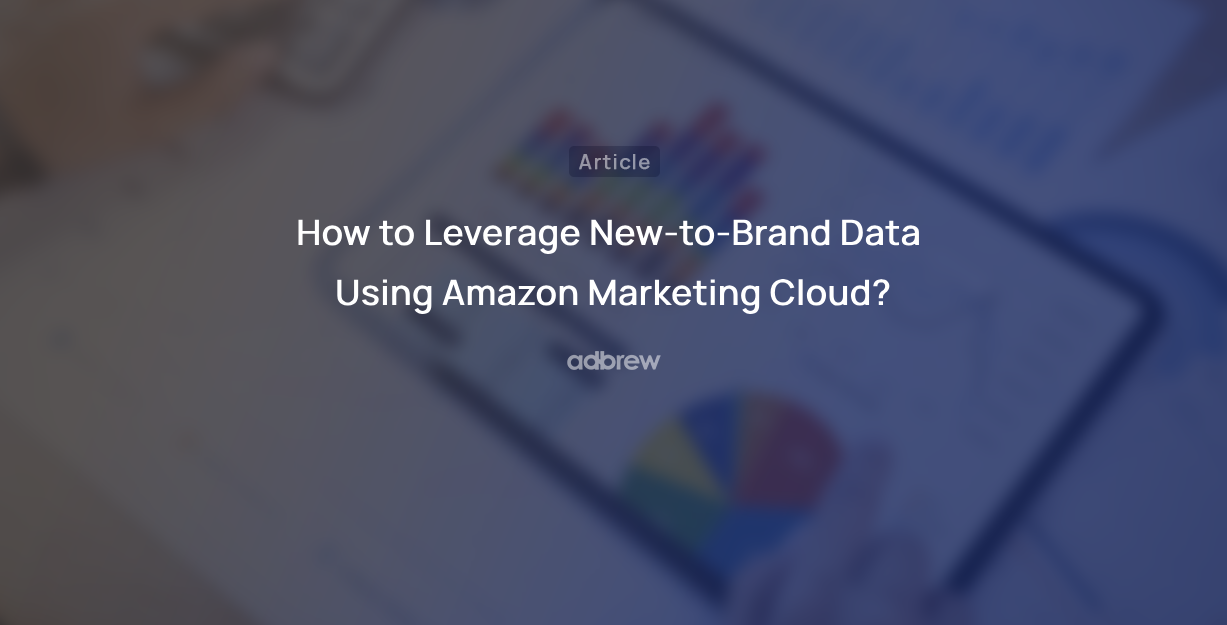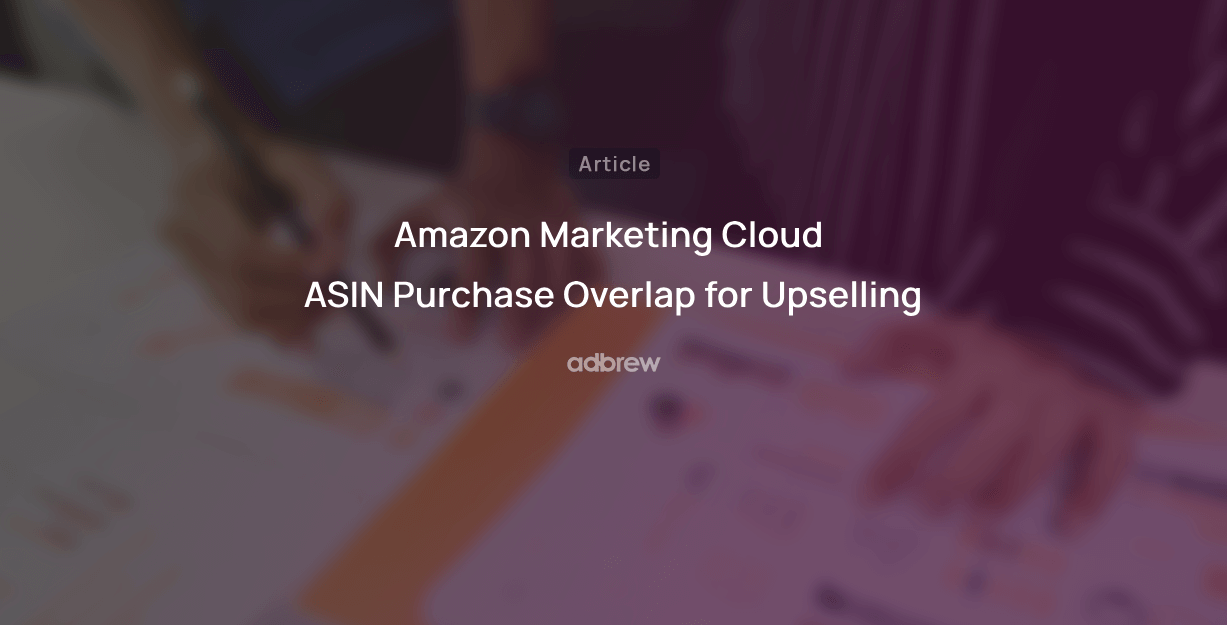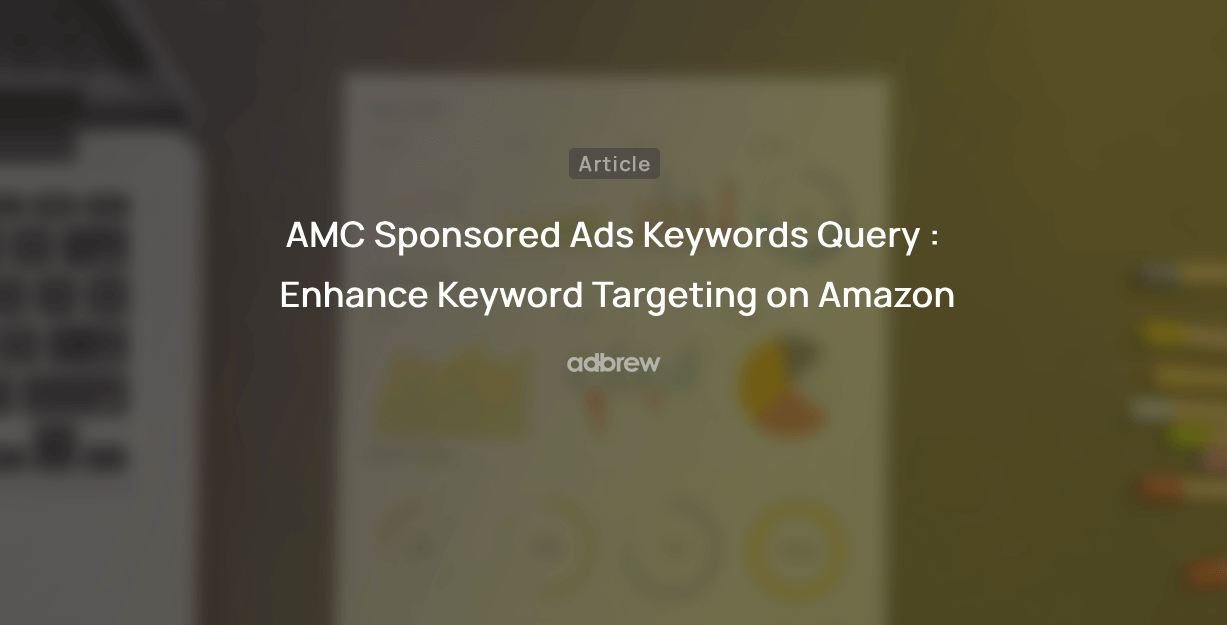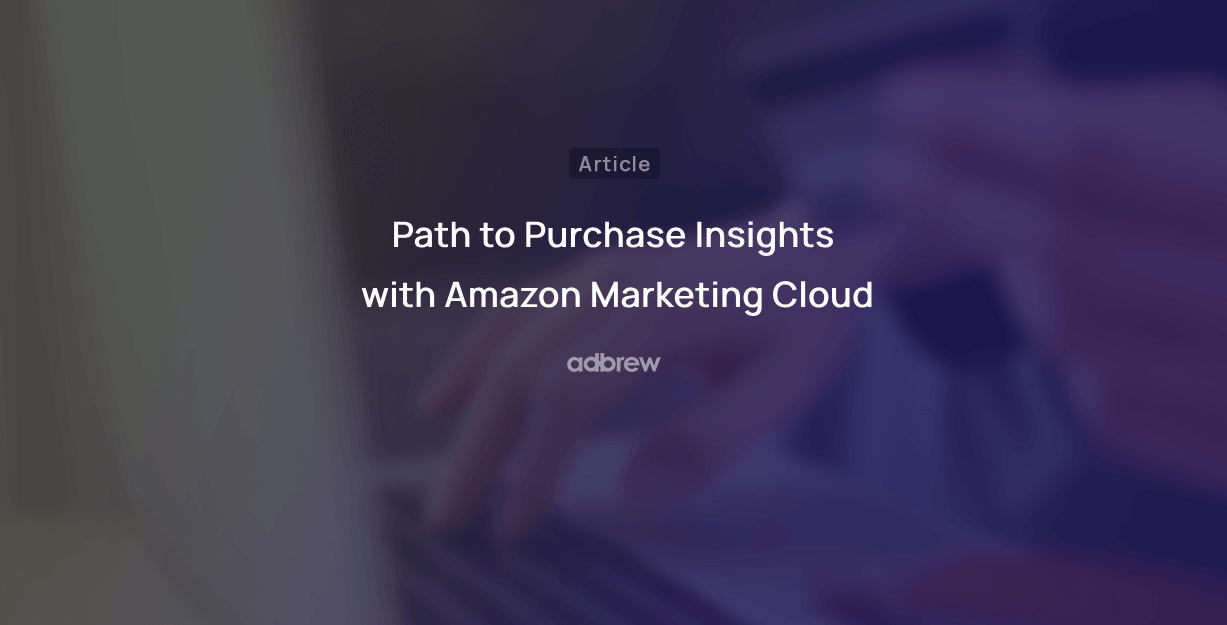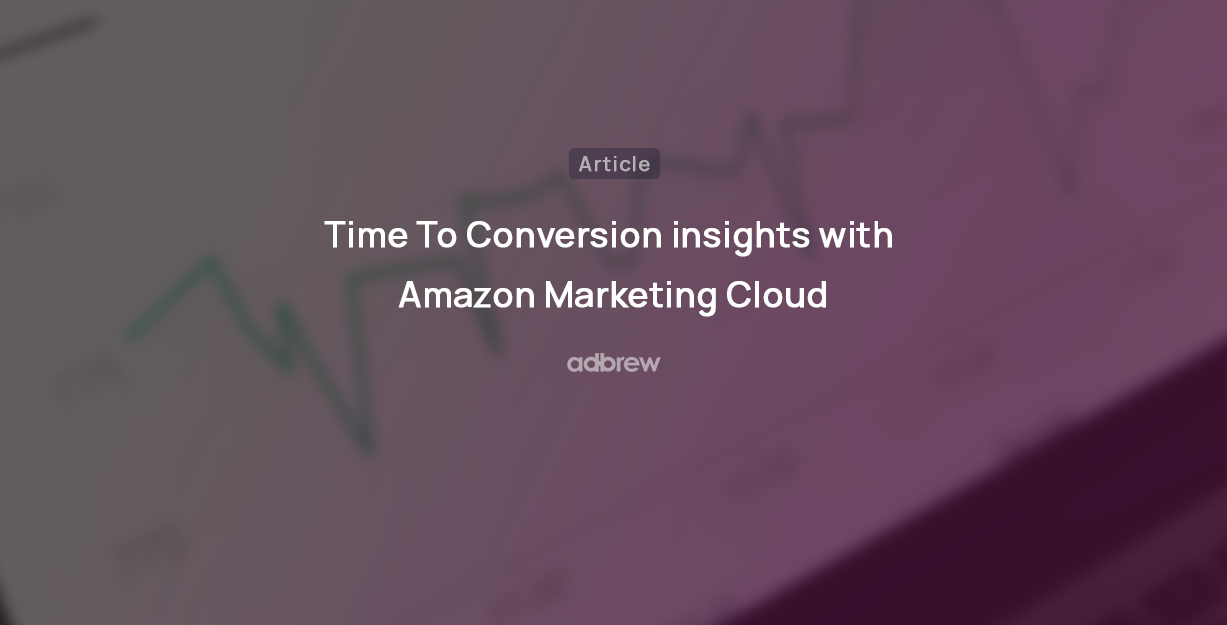Why AMC Instructional Queries Fall Short in Providing Deep Insights
26 Mar 2024

In recent times, there has been notable growth in the Amazon Marketing Cloud market, with an increasing number of brands embracing it.
Amazon has made significant strides with AMC, particularly with the introduction of the Instructional Query Library, aimed at simplifying the process for advertisers to gain insights such as the path to purchase, new-to-brand purchases, ASIN overlapping, time to conversions, multi-touch attributions, and more.
However, merely using these queries as they are may not be sufficient, as there are numerous opportunities to extract insights from AMC.
In this blog, we will delve into why AMC instructional queries aren’t enough and explore how they can be modified to extract better insights.
First, let’s refresh your understanding of the Amazon Marketing Cloud.
What is Amazon Marketing Cloud?
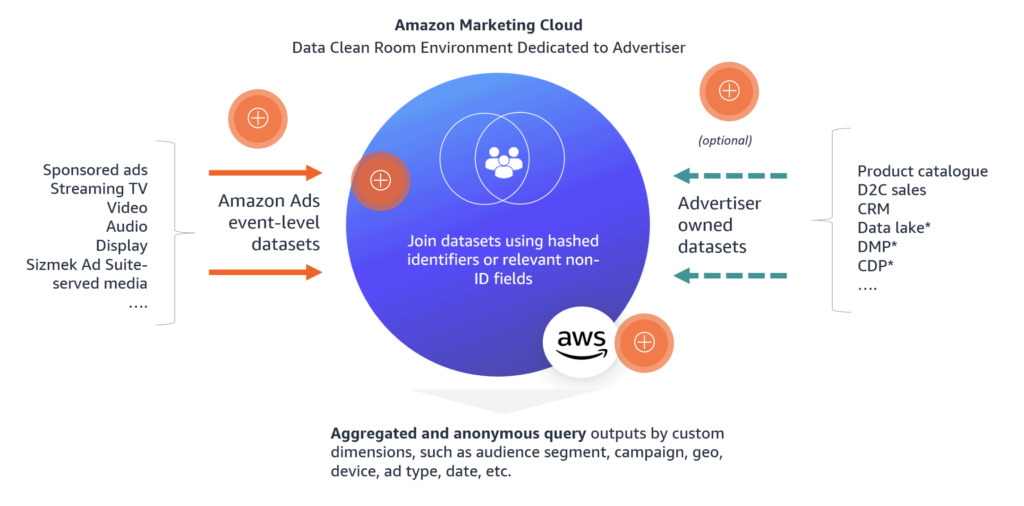
Source: Amazon
Amazon Marketing Cloud (AMC) is a secure cloud-based tool for advertisers. It allows you to analyze data from various sources, including Amazon Ads and their marketing channels using SQL queries. This combined data provides a more complete picture of customer behavior and helps advertisers measure the effectiveness of their marketing campaigns across different channels. AMC prioritizes user privacy by using first-party data, meaning individual users are not identifiable.
What is an Instructional Query Library in AMC?
The Instructional Query Library (IQL) in AMC is a collection of pre-written instructions and SQL queries for analyzing advertising data. These instructions, written in a language called SQL, can be used directly to answer common advertising questions or modified to fit your specific needs.
Why AMC Instructional Query Aren't Enough?
While Amazon has provided you with instructional queries for many different use cases, there are various instances where you may need to edit the provided SQL query or write a new query from scratch.
Let’s understand this with the help of various examples:
Custom Path to Purchase Query
The Instructional query provided by Amazon gives us a path that the customer follows until they make the final purchase, but it doesn’t take into account if the given ad type appears more than once in the path.
For example:
Let’s say a user follows the path:
[1, SB] -> [2, SP] -> [3, SP] -> [4, SD] -> Purchase
But from the given query, you will get the result as:
[1, SB] -> [2, SP] -> [3, SD] -> Purchase
It doesn’t consider the second occurrence of a Sponsored Product ad.
Another issue is that the above query only displays impressions, cost, sales, etc., but doesn’t show metrics like clicks, click-through rate, ACOS, etc.
To address these issues, you need to customize your SQL query and hence require advanced knowledge of how SQL works. For example, to obtain simple click metrics, you need to join another table, i.e., dsp_clicks, to the dsp_impressions table using a unique identifier.
Custom Attribution AMC Query
The Amazon Marketing Cloud provides us with various queries to measure ad performance using last-touch attribution, first-touch attribution, linear touch attribution, and position-based attribution. However, if you want to conduct a comparative analysis of different attributions in your campaigns to understand which one works best, you’ll need to write a custom query.
Custom ASIN Purchase Overlap
The Amazon instructional query for finding overall purchases reveals only two ASINs that have a certain degree of overlap.
But what about finding three ASINs that have some degree of overlap between each other?
This insight will be useful for identifying the best products to promote together for your Sponsored Brand Headline Ad. Since these three have been proven to be bought by the same customer one after another, promoting them together can increase the chances of other people buying these products together.
Measuring the Combined Impact of Sponsored Ads with DSP
Although there is an instructional query available to analyze the impact of different ad types (sponsored products, sponsored brands, sponsored display, sponsored streaming) with Demand Side Platform (DSP) ads, it doesn’t directly show the combined impact of all sponsored ads on DSP ads. To get this comprehensive data, you’ll need to craft a custom SQL query from scratch.
Search Term to ASIN Mapping
As of now, Amazon provides ad group-level search terms data to give visibility on the search terms people are clicking on to purchase advertised products in your ad group.
This raises a major concern for you as an advertiser.
If there are multiple products advertised in the same ad group, how would you know which product people bought from which search term?
This is where you can write an SQL query in Amazon Marketing Cloud to get ASIN-level search term data.
Ready to get started with Adbrew?
Use Adbrew's AMC dashboard to view new-to-brand metrics for all your sponsored and DSP campaigns with ease.
How Adbrew Can Help You?
Navigating the Amazon Marketing Cloud can be intimidating for those without technical know-how. It requires proficiency in SQL to run various queries and extract data effectively.
But fear not! Adbrew has simplified this process with the new Amazon Marketing Cloud Dashboard for AMC insights.
All you need to do is choose the report you want to generate, and Adbrew will fetch data from your Amazon Marketing Cloud, organize it, and present it in beautiful charts and tables so you can easily find insights.
Conclusion
In conclusion, Amazon’s Instructional Query Library (IQL) is a great resource for getting started with data analysis in AMC, but it can’t do everything. The provided queries might not be specific enough for your brand’s needs, and they may leave out important data points. Additionally, doing complex tasks like comparing attribution models or measuring combined ad impact requires advanced SQL skills and writing custom queries.
Related Blogs
Have you ever browsed through Amazon, adding items to your cart, but then got sidetracked and didn’t finish your purchase? […]
Having spent considerable time working with Amazon DSP ads, we’ve observed a common challenge: achieving and measuring optimal results from […]
In recent times, there has been notable growth in the Amazon Marketing Cloud market, with an increasing number of brands […]
Amazon Marketing Cloud offers free data analytics tools for analyzing advertising performance. However, the platform provides enhanced capabilities through its […]
Do you think the sales that Amazon has attributed to one of your campaigns are 100% accurate, and was that […]
Understanding the impact of our advertising efforts on attracting new customers is crucial for the growth of our brand. However, […]
Do you want to enhance the lifetime value of your customers on Amazon through targeted advertising campaigns? Upselling and cross-selling […]
It’s no secret that keyword targeting plays a crucial role in driving the audience to our product page on Amazon. […]
For brands navigating the complexities of Amazon advertising, understanding the customer journey from ad exposure to purchase used to be […]
As reported by Forbes, the global e-commerce marketplace boasts a staggering $6.3 trillion valuation, with Amazon contributing a significant 37.8% […]
In today’s data-driven era, brands can easily become disoriented without a complete understanding of how their target audiences are interacting […]
Do you think all of your customers purchase your product on the very first day when they are exposed to […]

